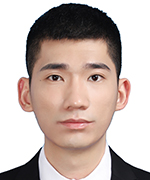
Ronald Wihal Oei
Nationality:
Indonesia
Faculty and Department:
Institute of Data Science
Year of Study:
3
Undergraduate University:
Fudan University, China
Why did you choose to do a PhD?
I graduated in Clinical Medicine and pursued specialist training in Oncology. During that time, I realized the importance of technology in healthcare and its huge potential for improving healthcare quality. Given the huge amount of data generated from healthcare recently, big data and machine learning are two key technologies that can improve healthcare. Therefore, I decided to do a PhD in data science since the programme would allow me to do cross-disciplinary research on leveraging data science for healthcare innovation.
Why did you choose to do graduate education at NUS? If you received offers from other universities, why did you pick NUS?
NUS consistently ranks as one of the best universities in the world. NUS provides many transformative programmes which emphasize cross-disciplinary research. For example, my PhD programme which is co-hosted by the Graduate School’s Integrative Sciences and Engineering Programme (ISEP) and the Institute of Data Science (IDS). Furthermore, Singapore is pursuing the Smart Nation initiative that makes a big push for the adoption of innovative data science tools to solve some challenges in healthcare.
How does graduate school compare to your undergraduate experience?
Graduate study is more fast-paced than undergraduate study with less spoon-fed content. It requires students to be more independent and to develop a higher level of initiative on their own research.
Briefly share about your research or thesis (i.e. dissertation topic for Masters by Coursework students).
My research topic is patient similarity analytics. My research aims at developing a patient similarity algorithm that incorporates both domain knowledge and data-driven insights to retrieve clinically similar patients given an index patient. By using this algorithm, physicians can refer to the clinical history of these similar patients as guidance for clinical decision-making.
What impact do you hope to have with your research?
This research is part of the AI in Health Grand Challenge funded by AI Singapore. It aims at using artificial intelligence to help primary care teams stop or slow disease progression and complication development in diabetes, hypertension and lipid disorder.
Share something fun from your graduate journey at NUS.
Given the cross-disciplinary nature of my PhD programme, it is such a good opportunity to meet people from diverse backgrounds. I often have discussions with other students that can bring new ideas to improve my own research.
Share a challenge you faced in graduate school and how you overcame it.
The main challenge is that I have little background in data science. I need to learn about how to implement machine learning and the theory behind, which is quite math-heavy. However, I am happy that I have supportive supervisors and lab mates that are willingly to help me through discussions we have.
What message would you like to give to students interested in graduate studies in NUS?
Graduate study requires a lot of effort and commitment. Therefore, make sure to have the right motivation before pursuing graduate study. Also, one should be passionate and has a deep interest in the research topic in order to enjoy climbing the mountain.
